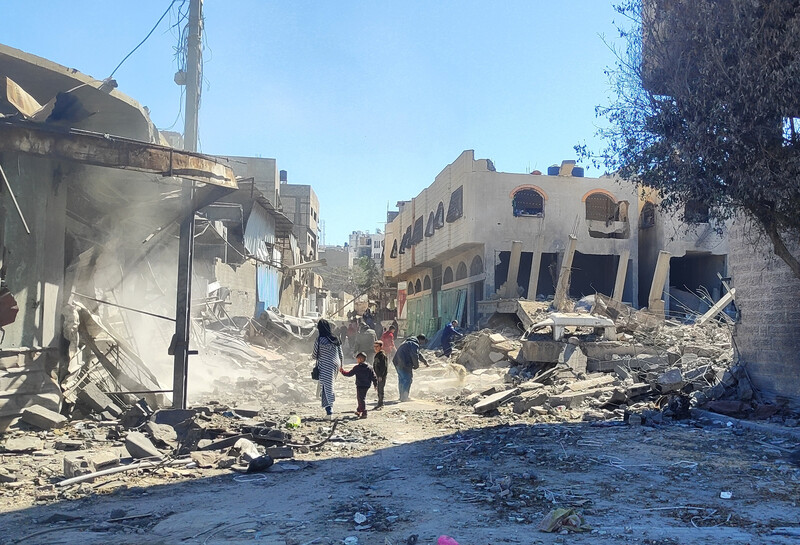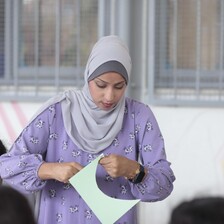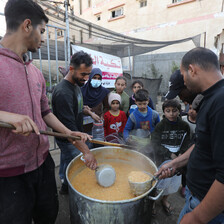The Electronic Intifada 7 March 2024

Delivering aid is too dangerous in most of Gaza’s northern half.
APA imagesWafaa al-Khalidi has heard her children crying from hunger many times.
In the early stages of the current genocidal war, Wafaa and her children fled their home in Beit Hanoun, northern Gaza.
The family took shelter in a school run by the UN agency for Palestine refugees (UNRWA). They remained there for some time despite how Israel ordered people in northern Gaza to move southwards.
When flour became extremely scarce, Wafaa made bread using bird seed. She had to ground the seeds with stones.
Wafaa, 44, is a widow. Her husband died four years ago.
Her five children range in age from 15 to 5.
“My children have lost a lot of weight,” she said. “Their immunity to illness is weak.”
One day, she searched for food in houses that had been vacated by people who had been displaced. All she could find was “some old, moldy bread” and a few leaves from a tree.
Eventually, Wafaa felt that she had to leave for the south. She and her children had to walk past Israel’s troops before arriving in the city of Deir al-Balah.
Along Deir al-Balah’s seafront, she met another family, who helped her to assemble a tent.
The family fed Wafaa and her children.
“It was like a dream that finally came true,” Wafaa said. “My children were very happy. They refused to eat anything other than bread because they were craving it for more than two months.”
Starvation spreads
Salem al-Hur, 35, also remained in the northern part of Gaza following Israel’s evacuation orders. His children are aged 6, 4 and 1.
He and his family sheltered at an UNRWA training college.
“Since the beginning of the war, I have been struggling to provide food for my three children,” he said. “I have a 1-year-old girl who needs to drink milk. Before the war, I used to bring them everything they needed.”
As the area in which he was located was besieged, aid deliveries have not been possible there for a few months.
And when aid deliveries have occurred, Israel has opened fire on people searching for food. More than 110 people were killed in last week’s Flour Bag Massacre on al-Rashid street, southwest of Gaza City.
Israel has carried out other attacks on people seeking aid since then.
Salem has a friend who has paid a heavy price simply for seeking food. After waiting 10 hours for aid, his friend was shot in the shoulder by the Israeli military.
In the earlier stages of the war, Salem and his wife discussed going to stay with relatives in Deir al-Balah. They asked various people if traveling southwards would be safe.
The replies they got were inconclusive, so they stayed in the northern part of Gaza.
With starvation spreading, they finally moved southwards on foot.
“I was forced to move for the sake of my children,” he said. “Otherwise, they will die of hunger.”
Arriving in Deir al-Balah, “we found bread, something we had been deprived of for more than 60 days,” he said.
“Things are not good in Deir al-Balah,” he added. “It is very expensive and difficult to get food. But at least there is flour.”
Ruwaida Amer is a journalist based in Gaza.





